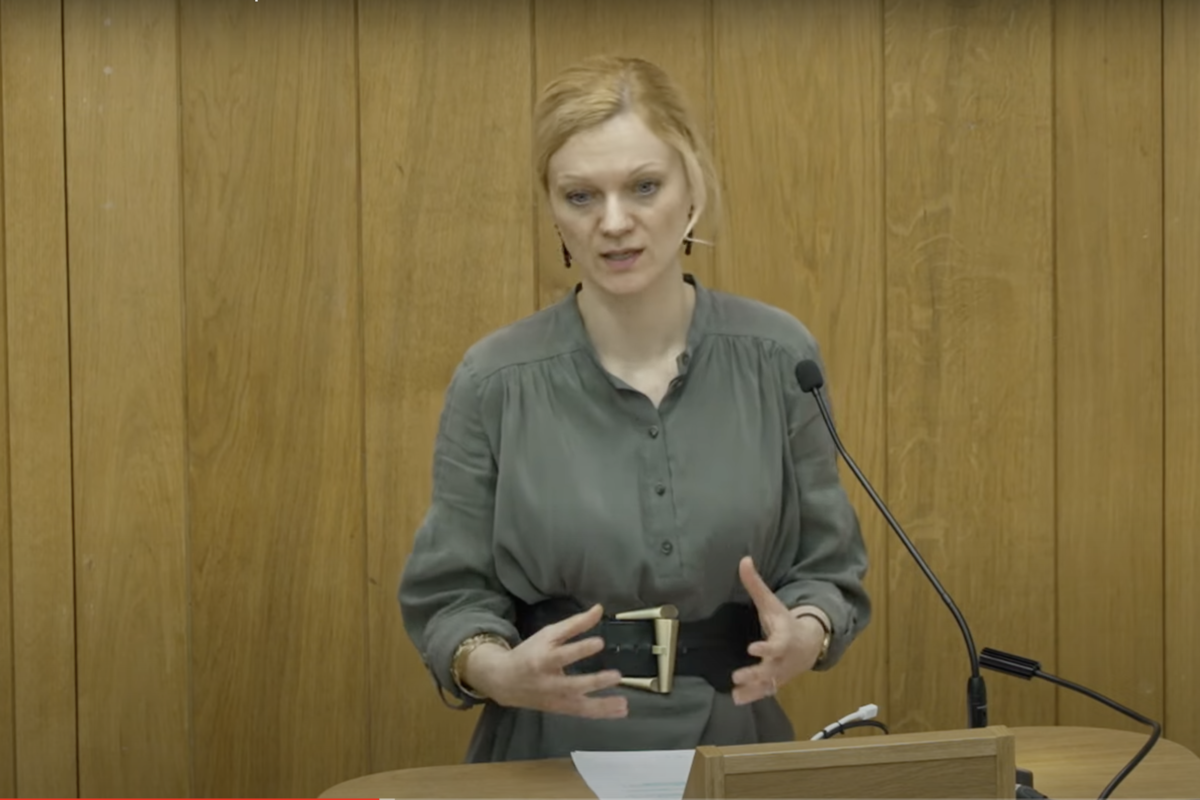As the COVID-19 crisis continues to affect millions of individuals around the world, the development of a vaccine becomes an essential component of States’ responses to the pandemic. A vaccine may not only save lives but also mitigate the socio-economic impact of the disease by allowing individuals to interact and work more safely.
Noting that, whilst the coronavirus pandemic and its consequences unfold, medical and research facilities in several countries have been targeted by malicious cyber operations, and that seemingly minor intrusions can disrupt or harm the availability or integrity of the data which could, among other things, compromise the ability to conclude clinical trials, obtain approval for them or manufacture or distribute an eventual vaccine,
Further noting that, because scientific development is now highly dependent on information and communications technologies spread across the globe, such harmful cyber activity may undermine States’ and global efforts to contain and recover from the COVID-19 pandemic and its side-effects,
Bearing in mind that COVID-19 is a highly contagious disease that respects no national borders, making international solidarity essential to restoring global health security,
Considering that the discovery and widespread provision of a safe and effective COVID-19 vaccine could save not just lives, but also economic livelihoods around the world,
Noting the Oxford Statement on the International Law Protections Against Cyber Operations Targeting the Health Care Sector conclusion that ‘[a]ny interference with the provision of health-care, including by cyber means, risks further loss of life as thousands continue to die every day’,
And emphasizing that — even if the specific application and interpretation of international law to the technologies, knowledge and data used in the process of vaccine development require fleshing out — COVID-19 vaccine, research, manufacture, and distribution are both essential medical services and part of States’ critical infrastructure that must be protected by international law,
Guided by these considerations, we agree that, currently, the following rules and principles of international law protect the research, manufacture and distribution of COVID-19 vaccine candidates against harmful cyber operations. We encourage all States to consider these rules and principles when developing national positions as well as in the relevant multilateral processes and deliberations:
- As affirmed in the first Oxford Statement, international law applies in its entirety to cyber operations by States including those that target the healthcare sector and essential medical facilities. These facilities include vaccine research, trial, manufacture and distribution facilities, other research paths to therapies and preventative measures, together with their technologies, networks and data, particularly clinical trial results, and other research.
- International law prohibits cyber operations by States that have significant adverse or harmful consequences for the research, trial, manufacture, and distribution of a COVID-19 vaccine, including by means that damage the content or impair the use of sensitive research data, particularly trial results, or which impose significant costs on targeted facilities in the form of repair, shutdown, or related preventive activities.
- International humanitarian law requires that at all times parties to an armed conflict: (a) respect and protect medical facilities, transport and personnel, including those involved in COVID-19 vaccine research, trial, manufacture and distribution; (b) refrain from disrupting the functioning of COVID-19 vaccine research, trial, manufacture and distribution facilities in any way, including through cyber operations; and (c) take all feasible precautions to prevent and avoid, or at least minimize, incidental harm caused by cyber operations to those facilities, and (d) take all feasible measures to facilitate their functioning and prevent their being harmed, including by cyber operations.
- Outside of armed conflict, international law imposes negative and positive obligations on States vis-à-vis other States and individuals that afford comprehensive protection to the research, trial, manufacture, and distribution of COVID-19 vaccine candidates.
- States must take all feasible measures to prevent, stop and mitigate malicious cyber operations against the data or technologies used for COVID-19 vaccine research, trial, manufacture or distribution which they know or should have known emanate from their territory or jurisdiction.
- States’ positive duties to ensure civil and political rights under international law require them to protect COVID-19 vaccine research, trial, manufacture and distribution to individuals subject to their jurisdiction.
- The fulfilment of social, cultural and economic rights under international law requires States during a pandemic: (a) to ensure the manufacture and distribution of a COVID-19 vaccine in a lawful, fair, equitable, affordable and non-discriminatory manner; and (b) to cooperate to facilitate access to the vaccine by other countries.
The current list of signatories and their affiliations (for identification purposes only) is below. International lawyers who wish to append their name to the statement should send an email to [email protected]:
-
Mark D. Agrast, Executive Director, American Society of International Law
-
Dapo Akande, Professor of Public International Law, Co-Director, Oxford Institute for Ethics, Law & Armed Conflict (ELAC), University of Oxford
-
Mariana Salazar Albornoz, Member of the Inter-American Juridical Committee
-
Katya Alkhateeb, Senior Research Officer, School of Law & Human Rights Centre, University of Essex
-
Daniel Álvarez-Valenzuela, Professor of Law, University of Chile School of Law; Academic Coordinator Centre for Information Technology Law Studies (CEDI)
-
Catherine Amirfar, Partner, Debevoise & Plimpton LLP, former Counselor on International Law, U.S. State Department (2014-2016)
-
Mahnoush Arsanjani, Former Director, Codification Division, Office of Legal Affairs, United Nations
-
Pouria Askary, Assistant Professor of International Law, Allameh Tabataba’i University (ATU), Iran
-
Helmut Philipp Aust, Professor of Public and International Law, Freie Universität Berlin
-
Eyal Benvenisti, Whewell Professor of International Law, University of Cambridge, C C Ng Fellow, Jesus College, Director of the Lauterpacht Centre for International Law
-
Antonio Remiro Brotons, Emeritus Professor of International Law, Universidad Autónoma de Madrid
-
Russell Buchan, Senior Lecturer in International Law, University of Sheffield
-
Başak Çalı, Professor of International Law at the Hertie School, Berlin and its Director of the Centre for Fundamental Rights
-
Nicolás Carrillo-Santarelli, Associate researcher of International Law, University of Monterrey (UDEM)
-
Koldo Casla, Lecturer, School of Law, University of Essex
-
Anthony E Cassimatis, Professor of Law, University of Queensland
-
Kalliopi Chainoglou, Assistant Professor of International Law and International Institutions, University of Macedonia
-
Benarji Chakka, Professor of International Law, VIT-AP University School of Law (VSL), VIT-AP University, India
-
Alejandro Chehtman, Professor of International Law at Di Tella University, Argentina
-
Roger S. Clark, Board of Governors Professor, Rutgers Law School
-
Sarah H. Cleveland, Louis Henkin Professor of Human and Constitutional Rights, Columbia University Law School, Former Vice Chair, UN Human Rights Committee
-
Antonio Coco, Lecturer in Public International Law, University of Essex and Visiting Fellow at ELAC, University of Oxford
-
Rebecca Crootof, Assistant Professor of Law, University of Richmond School of Law
-
Federica D’Alessandra, Executive Director of the Oxford Programme on International Peace and Security, Blavatnik School of Government, University of Oxford
-
Jean D’Aspremont, Chair in Public International Law, University of Manchester; Professor of International Law, Sciences Po School of Law
-
Lori Fisler Damrosch, Hamilton Fish Professor of International Law and Diplomacy, Columbia University Law School
-
Tom Dannenbaum, Assistant Professor of International Law, The Fletcher School of Law & Diplomacy, Tufts University
-
Talita de Souza Dias, Postdoctoral Research Fellow, ELAC, University of Oxford
-
François Delerue, Research Fellow in Cyberdefense and International Law at the Institut de Recherche stratégique de l’École militaire (IRSEM) and Adjunct Lecturer at Sciences Po, Paris, France
-
Diane Desierto, Associate Professor of Human Rights Law and Global Affairs, Keough School of Global Affairs, University of Notre Dame
-
William S Dodge, Martin Luther King Jr Professor of Law, University of California, Davis, School of Law
-
Jessica Dorsey, Assistant Professor of International and European Law, Utrecht University School of Law, The Netherlands
-
Jeffrey L. Dunoff, Laura H. Carnell Professor of Law, Temple University Beasley School of Law
-
Mark Eccleston-Turner, Lecturer of Global Health Law, Keele University, UK; Distinguished Visiting professor of global health law, Georgetown university, USA
-
Kristen E. Eichensehr, Martha Lubin Karsh and Bruce A. Karsh Bicentennial Professor of Law, University of Virginia School of Law
-
Benjamin Ferencz, sole surviving Nuremberg war crimes Prosecutor
-
Serena Forlati, Associate Professor, University of Ferrara, Italy
-
Chiara Giorgetti, Professor of Law, Richmond Law School
-
Guy S. Goodwin-Gill, Professor of Law, University of New South Wales (UNSW), Andrew & Renata Kaldor Centre for International Refugee Law, UNSW, Emeritus Fellow, All Souls College, Oxford
-
Claudio Grossman, Professor of Law, Dean Emeritus, American University Washington College of Law
-
Nienke Grossman, Professor of Law, Co-Director, Center for International and Comparative Law, University of Baltimore School of Law
-
Oleg Gushchyn, Professor, Military Law Department, Taras Shevchenko National University of Kyiv, Ukraine
-
Adil Haque, Professor of Law and Judge Jon O. Newman Scholar, Rutgers Law School
-
Jakub Harasta, Assistant Professor, Faculty of Law, Masaryk University, Czech Republic
-
Kevin Jon Heller, Professor of International Law and Security, University of Copenhagen, Professor of Law, Australian National University, Academic Member, Doughty Street Chambers
-
Stacey Henderson, Lecturer, Adelaide Law School
-
John Quentin Heywood, Associate Professor/Law Librarian, American University Washington College of Law, & Chair, AU Faculty Senate
-
Tamás Hoffmann, Senior Research Fellow, Centre for Social Sciences Institute for Legal Studies; Associate Professor, Corvinus University of Budapest
-
Duncan B. Hollis, Laura H. Carnell Professor of Law, Temple University School of Law; Member of the Inter-American Juridical Committee
-
Rebecca Ingber, Professor of Law, Benjamin N. Cardozo School of Law
-
Valentin Jeutner, Associate Professor of Law, Faculty of Law, Lund University
-
Derek Jinks, A.W. Walker Centennial Chair in Law, University of Texas School of Law
-
Stian Øby Johansen, Associate professor at the Centre for European Law at the University of Oslo
-
Kate Jones, Faculty of Law, University of Oxford
-
Aonghus Kelly, Executive Director, Irish Rule of Law International
-
Jack Kenny, Research Assistant, ELAC
-
Shayan Ahmed Khan, Senior Research Associate, Research Society of International Law, Pakistan
-
Harold Hongju Koh, Sterling Professor of International Law, Yale Law School, Legal Adviser (2009-13) and Assistant Secretary for Democracy, Human Rights and Labor (1998-2001), US Department of State
-
Claus Kreß, Professor and Director, Institute of International Peace and Security Law, University of Cologne
-
Heike Krieger, Professor of International and Public Law, Freie Universität Berlin
-
Masahiro Kurosaki, Associate Professor of International Law and Director of the Study of Law, Security and Military Operations, National Defense Academy of Japan
-
O-Gon Kwon, President, Assembly of States Parties, International Criminal Court, former Judge and Vice President, International Criminal Tribunal for the former Yugoslavia (Seoul, Republic of Korea)
-
Henning Lahmann, Digital Society Institute, ESMT Berlin, Germany
-
Kobi Leins, Senior Research Fellow in Digital Ethics, Centre for AI and Digital Ethics, University of Melbourne; Non-Resident Fellow of the United Nations Institute for Disarmament Research
-
Eliav Lieblich, Senior Lecturer, Buchmann Faculty of Law, Tel Aviv University
-
Rain Liivoja, Associate Professor, University of Queensland Law School
-
Marco Longobardo, Lecturer in International Law, University of Westminster
-
Asaf Lubin, Associate Professor of Law, Indiana University Maurer School of Law; Faculty Associate, Berkman Klein Center for Internet and Society, Harvard University
-
Fabrizio Marrella, Full Professor of International Law, University “Ca’ Foscari” Venice, Italy; Professeur invité at the Sorbonne Law School, University Paris I Panthéon Sorbonne
-
Ralf Michaels, Director, Max Planck Institute for Comparative Law and Private International Law, Hamburg
-
Tomohiro Mikanagi, Ministry of Foreign Affairs, Japan
-
Marko Milanovic, Professor of Public International Law, University of Nottingham School of Law
-
José A. Moreno, Faculty Member, National University of Asunción, Paraguay; Member, Inter-American Juridical Committee
-
Samuel Moyn, Henry R. Luce Professor of Jurisprudence, Yale University
-
Natasa Nedeski, Assistant Professor Public International Law, University of Amsterdam
-
James C. O’Brien, Vice Chair, Albright Stonebridge Group
-
Mónica Pinto, Professor Emerita, Universidad de Buenos Aires, Facultad de Derecho
-
Erin Pobjie, Senior Research Fellow, Max Planck Institute for Comparative Public Law and International Law
-
Anni Pues, Lecturer in International Law, Glasgow Centre for International Law and Security, University of Glasgow
-
Paul S. Reichler, Partner, Chair of the International Litigation and Arbitration Department, Foley Hoag LLP, Washington, DC
-
Michael Reisman, Yale Law School
-
Alix Richard, Public International Lawyer, Port-au-Prince, Haiti; Member of the Inter-American Juridical Committee
-
Przemysław Roguski, Lecturer in Law, Jagiellonian University in Kraków, Poland
-
Gabor Rona, Professor of Practice and Director of the Law and Armed Conflict Project, Cardozo Law School
-
Helene Ruiz-Fabri, Professor, Director of the Max Planck Institute Luxembourg for Procedural Law
-
Barrie Sander, Assistant Professor of International Justice, Leiden University
-
Andrew Sanger, University Lecturer in International Law, University of Cambridge
-
Michael Schmitt, Professor of International Law at the University of Reading and Francis Lieber Distinguished Scholar at the United States Military Academy (West Point)
-
Afonso Seixas-Nunes, SJ Visiting Fellow, ELAC
-
Shannon Raj Singh, Visiting Fellow of Practice, Oxford Program on International Peace and Security, ELAC
-
Ronald C. Slye, Professor of Law, Seattle University School of Law
-
Alfred H.A. Soons, Professor emeritus of public international law, Utrecht University School of Law, The Netherlands
-
David P. Stewart, Professor from Practice, Georgetown University Law Center, Washington DC
-
Elizabeth Stubbins Bates, Junior Research Fellow in Law, Merton College, Oxford; Early Career Fellow, Bonavero Institute of Human Rights, University of Oxford; Research Fellow, ELAC
-
Christian J. Tams, Chair of International Law, University of Glasgow; Director, Glasgow Centre of Int‘l Law & Security
-
Ruti Teitel, Ernst C Stiefel Professor of Comparative Law, New York Law School
-
Nicholas Tsagourias, Professor of International Law, University of Sheffield, Director of the Sheffield Centre for International and European Law
-
Tsvetelina van Benthem, Research Associate, ELAC
-
Liis Vihul, Founder and CEO, Cyber Law International
-
John Paolo Roberto A. Villasor, Dean and Professor of Law, UNO-Recoletos School of Law, Philippines
-
Michael Waibel, Professor of International Law, University of Vienna, Austria
-
Alex Whiting, Professor of Practice, Harvard Law School




